Life
Sign up for our newsletter
We summarize the week's scientific breakthroughs every Thursday.
-
 Health & Medicine
Health & MedicineMost football players who donated their brains to science had traumatic injury
A self-selected sample of 202 deceased football players, the largest to date, finds that the majority suffered from chronic traumatic encephalopathy.
-
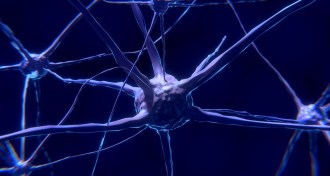 Neuroscience
NeuroscienceThere’s a long way to go in understanding the brain
Neuroscientists offer multiple “perspectives” on how to plug gaps in current knowledge of the brain’s inner workings.
-
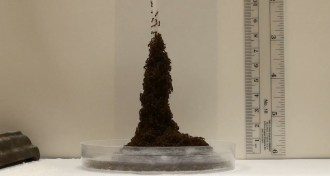 Animals
AnimalsFire ants build towers with three simple rules
Fire ants use the same set of simple rules to produce static rafts and perpetually moving towers.
-
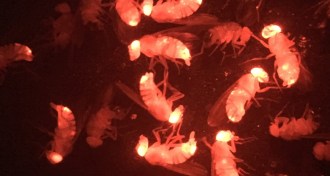 Genetics
GeneticsResistance to CRISPR gene drives may arise easily
New tools for pest and disease control could become useless without improvements.
-
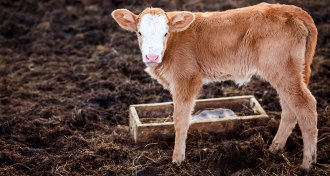 Health & Medicine
Health & MedicineCows produce powerful HIV antibodies
For the first time in any animal, researchers elicit broadly neutralizing antibodies against HIV. Cows’ antibodies could help with drug development.
-
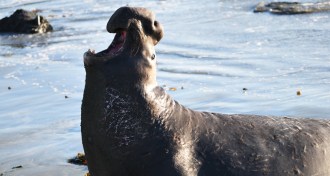 Animals
AnimalsElephant seals recognize rivals by the tempo of their calls
The distinct sputtering-lawnmower sound of a male elephant seal’s call has a tempo that broadcasts his identity to competitors.
-
 Tech
TechThis robot grows like a plant
A new soft robot navigates its environment by growing in a manner inspired by plants.
-
 Genetics
GeneticsThese genes may be why dogs are so friendly
Dog domestication may be the result of just a few genetic changes, including ones that made canines more interested in interacting with people.
-
 Health & Medicine
Health & MedicineCommon drugs help reverse signs of fetal alcohol syndrome in rats
A thyroid hormone and a blood sugar drug affect levels of a hormone needed for brain development, study in rats shows.
-
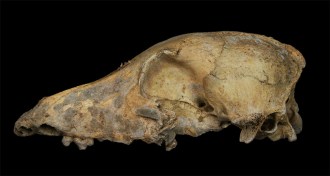 Genetics
GeneticsDog domestication happened just once, ancient DNA study suggests
DNA of ancient canines counters idea that dogs were domesticated twice, in Europe and Asia.
-
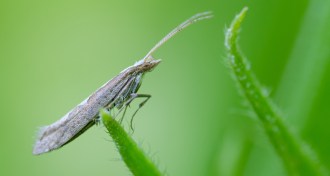 Agriculture
AgricultureGM moth trial gets a green light from USDA
GM diamondback moths will take wing in a New York field trial.
-
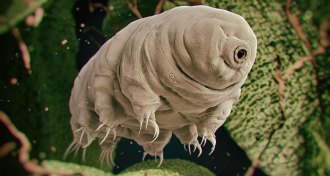 Animals
AnimalsWater bears will survive the end of the world as we know it
Water bears have a till-death-do-us-part pact with the sun, study suggests.